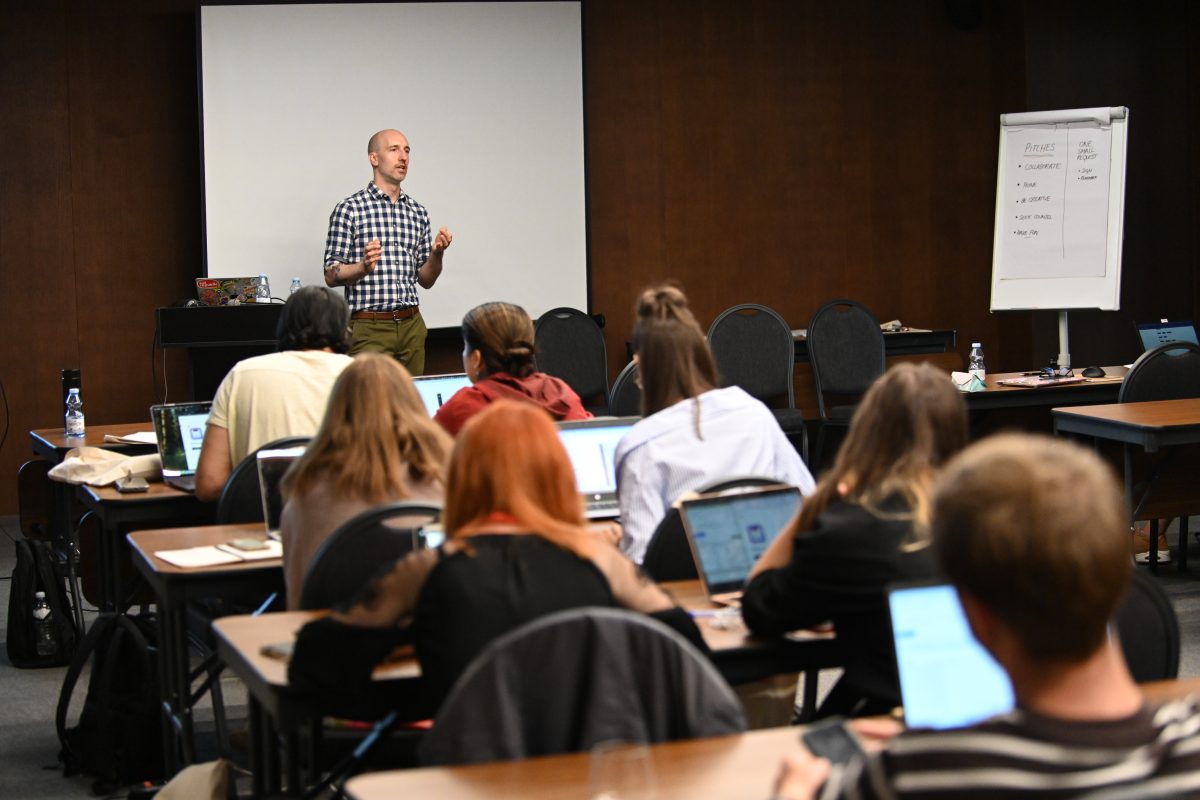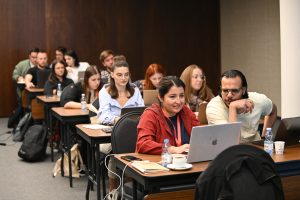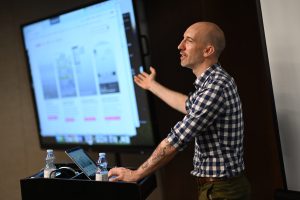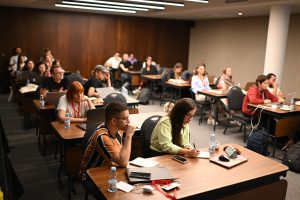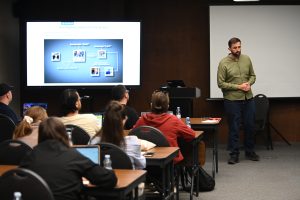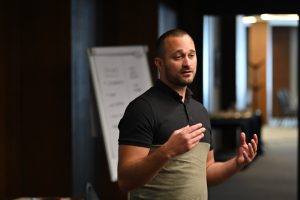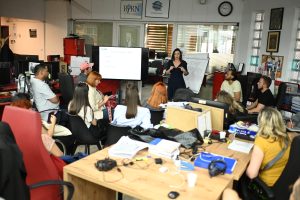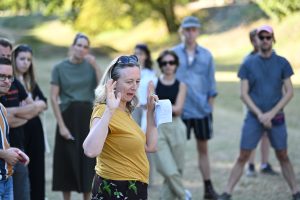by Vuk Tesija
Summing up the previous day, lead trainer Blake Morrison told everyone: “We are the family of journalists. If you do something good, it makes us all look good.”
Soma showed participants how to transcribe their interviews quickly and efficiently with the help of AI, saving significant time. The participants were impressed by the speed and accuracy with which voice was converted into text, without the need for additional effort.
He also revealed numerous other techniques that will make their work easier in the future, demonstrating practical solutions to overcome technical difficulties.
The participants adopted new skills such as searching huge databases and finding answers that previously required days of preparation and reading, now achievable in just a few seconds.
The session continued with Sharbil Nammour, Media Safety Advisor and Founder of Vallaris Solutions.
“I’m interested in your safety. Of course, you have to do the job, but you must also take care of yourself,” Nammour warned the journalists, stressing that in risky situations they need to pay close attention to time and distance – two factors they must proactively control.
Using examples such as protest footage and reports from high-risk areas, Nammour vividly illustrated poor practices in reporting. “Be careful that the journalist does not become the story,” he cautioned, while outlining the best ways to prevent such situations.
The packed lecture schedule continued with Kreshnik Gashi, Managing Editor of Kallxo.com, based in BIRN Kosovo, and Sasa Dragojlo, an investigative journalist at Balkan Insight at BIRN’s hub, who presented their award-winning investigative stories on organised crime groups.
Gashi and Dragojlo discussed the links between crime and politics, as well as the importance of cultivating reliable sources of information.
“Thanks to our story, around 30 corrupt police officers were arrested,” said Gashi, who investigated money laundering schemes originating in Kosovo and ending up as investments in Montenegro. “You have to have your informants, but you have to constantly think about their well-being because they can pay a terrible price,” said Gashi.
Dragojlo presented a series of stories he has been writing for the past four years about migrant smuggling and the Balkan migrant route. “You can’t have armed foreign nationals in border areas without the police knowing, that’s what caught my attention,” Dragojlo said. Advising the participants, he told them: “Be patient, working slowly, and horizontally, will get you vertically.”
In the afternoon, participants visited the Kallxo Studio in Pristina, where they attended a lecture by Jeta Xharra, Director of BIRN Kosovo, entitled ‘From Exposure to Impact: Why Some Investigations Spark Change and Others Don’t’.
The long third day concluded with Emma Thomasson, journalist and media consultant, who highlighted the importance of mental health for journalists.
She spoke about stress, burnout, and other mental health risks, as well as strategies for improving team communication and managing conflict.

